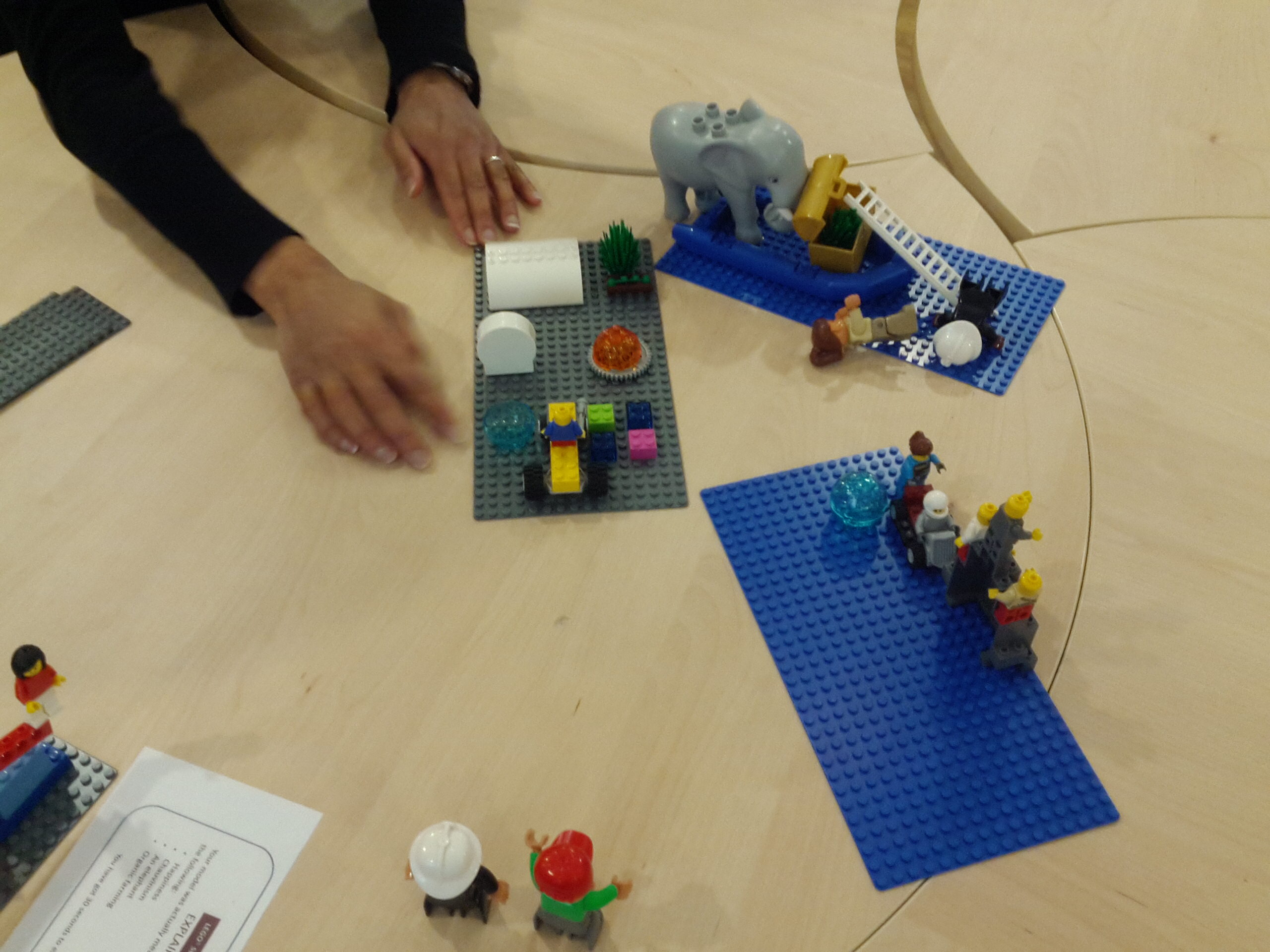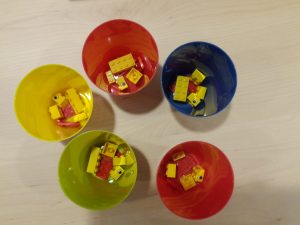
Hello again,
For the past 6 months I have been delivering visual, kinaesthetic staff development sessions at DMU epitomising the Writing PAD ‘thinking with the hands’ philosophy. These are: Introduction to LEGO® SERIOUS PLAY®, Introduction to Infographics and, starting shortly, Introduction to Reframing.
As we start to plan how these workshops will (hopefully!) grow and develop during the next academic year, here are my reflections on the sessions so far, starting with:
Workshop 1. Introduction to LEGO ® SERIOUS PLAY ®
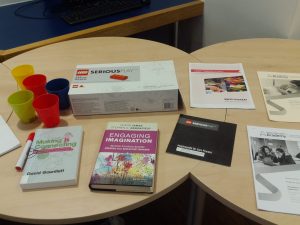
This is a 2 hour session and is open to all academic and professional services staff at the university. The workshop provides staff with an understanding of the key principles of LEGO® SERIOUS PLAY® plus hands-on experience in the methodology. Attendees are also encouraged to reflect on potential applications of LSP in their own contexts.
Positives:
-
Uptake has been good, and staff have come from a broad cross-section of diciplines and departments.
-
A central idea of LSP is to build a model in response to a question: it was difficult to decide on a question that would be meaningful to everyone. It turns out that ‘How you see your current role at DMU’ worked well: although staff came from diverse parts of the university, all were able to respond to this question.
-
Another key aspect of LSP is to move from individual to shared models: it was interesting to see how staff were able to work together as a group on this, and a surprising amount of common ground was identified.
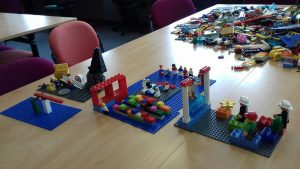
Examples that were given as best thing about the workshop:
- ‘The humanity of the experience’
- ‘Thinking outside the box’
- ‘Allows all participants to communicate on an even footing’
- ‘Time to think and reflect’
- ‘Working together to find connections’
Just a few of the suggestions given for potential applications of LSP:
- Student recruitment
- Team building
- Breaking down barriers in student cohorts
- Staff research groups
- Career decision making
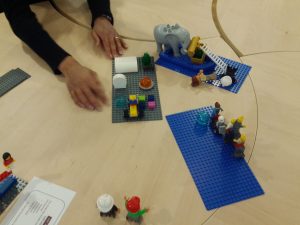
Challenges:
-
Time! LEGO® SERIOUS PLAY® works best over a one, or ideally two day period. Fitting everything into two hours is difficult, and staff fed back that they would like more time. Depending on numbers and the richness of the discussions facilitated by the process, I wasn’t always able to fit in everything that I planned.
-
Balancing theory and practical elements. Some participants would have liked to know more about the origins/thinking behind the methodology: difficult to fit this in without comprimising the experiential nature of the session (time constraints again!).
-
Funding for LSP materials: some staff are keen to incorporate LSP into their practice, but don’t have access due to cost.
Future ideas:
-
Addressing the issue of teaching large groups using LEGO® SERIOUS PLAY® by developing a staff development session using the Windows Exploration Bags (small Lego kits).
-
Incorporating case studies demonstrating a range of LSP applications across disciplines and learning contexts (please let me know if you have any examples I can include!).
-
A Lego Lending Library to enable staff to borrow Lego kits if funds are not available to buy (need to think about the logistics of this one!).
Back soon with reflections on our Introduction to Infographics staff development sessions, inspired by the fabulous Lulu Pinney.
Please do let me know if you would like to contribute a blog post on any aspect of visual/kinaesthetic learning and teaching.
Julia
